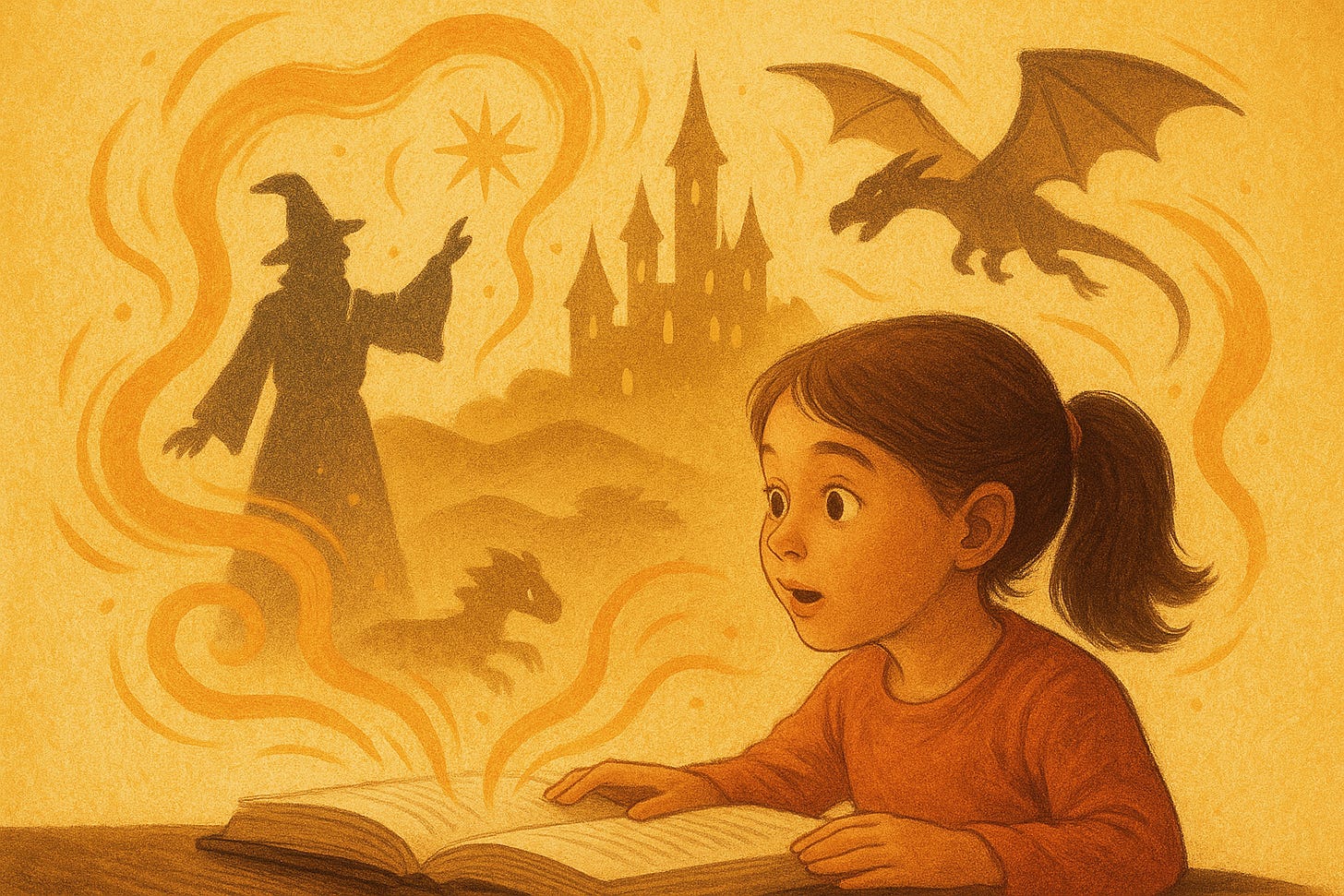Measuring the Immeasurable: Why Some Stories Leave a Mark
“Why isn’t there a movie about it, Dad?”
It was an honest question, clearly a pressing one. The kind you don’t really give much thought to after seeing a lot of unusual decisions and results involving movies and books.
But it was clearly top of mind after we finished our latest audiobook.
We haven’t watched movies about The Lord of the Rings or Harry Potter, but knowing that there was some kind of “official” source of truth for what these characters looked like was what mattered to her.
Knowing what Frodo or Hermione looked like helped her put the pieces together in her head (and in her many drawings). Even though she loves to draw, “unofficial” interpretations of characters like Ged or Vetch just weren’t cutting it.
A Wizard of Earthsea is quite an intriguing book, certainly enough so to leave a lasting impression on my daughter’s imagination.
Yet, we’re left to wonder why some books get made into successful movies and others don’t — and even further down that line of thought, why some of these movies become successes while others flounder.
Naturally, my mind went the most logical route first — it starts with numbers.
A quick search yielded the following results:
Harry Potter sold an estimated 600+ million copies
Lord of the Rings: 150-200+ million
Chronicles of Narnia: 100+ million
Earthsea: 5-10+ million
That kind of discrepancy makes it easier to see why Harry Potter and Frodo made it to the big screen, while the Ged of Earthsea only managed to be turned into a few miniseries (apparently, flops).
Still, as an aspiring novelist, 5–10 million books sold is no small feat. That means millions of people bought the words you put on paper and crafted into a story — quite impressive!
Those sorts of things don’t really compute in a child’s mind, though.
To her, it clearly made an impression. So naturally, it must be a very good book. So, why don’t many other people see it the same way?
Maybe it’s because she hasn’t yet been jaded by how the world commodifies everything — even art — but it’s a fair question. It led me to wonder how we should measure impact — and whether it really even matters at all.
First, I told her, it’s not that people didn’t see it the same way. It’s just that maybe not as many did, for whatever reason. In fact, you could argue that the smaller group of readers may have valued Earthsea even more deeply than the bigger-name books. You could point to the series winning major awards, like the National Book Award, Nebula, and Locus, lending credence to her belief that the book is worth its weight in gold.
Literary books, the ones that go deeper into language and theme, may simply be harder to adapt.
These are the ones that fall under the age-old cliche, “The book was so much better than the movie.”
And, often, many people wonder why that movie was made in the first place. Couldn’t they have just left a good book alone and let it shine in the medium it was intended for?
When it comes to art, which is and always will be subjective (no matter how much people try to turn it into an algorithm), these answers could likely be debated until the end of time.
We could try to quantify the level of impact art has on someone. That would likely be commercial impact and whether it yielded lots of sales, movies produced, etc.
However, that leaves a gaping hole. How much, or how deep, of an impact is truly being made?
We’ve all read at least one story that stayed with us forever, perhaps shaping the way we view the world, sparking a fire that lights up our imagination, or planting a creative seed that continues to grow and evolve, even many years later.
Stories impact us in countless and immeasurable ways.
For example, the author, Ursula K. Le Guin, passed away not long after my daughter was born. Yet, her works are leaving an imprint on my daughter’s life.
Many more authors produce works that don’t receive acclaim or leave much of a mark until they’ve left this world.
Imagine pouring all your blood, sweat, and tears into a creative work that yields very little impact while you’re alive. Perhaps it’s just ahead of its time, but you’d never know. That’s pretty humbling.
Just one story, one drop in the pond, can leave ripples forever.
We don’t have to measure them. We just have to feel them, and maybe let their ripples shape the ones we’ll send out next.


